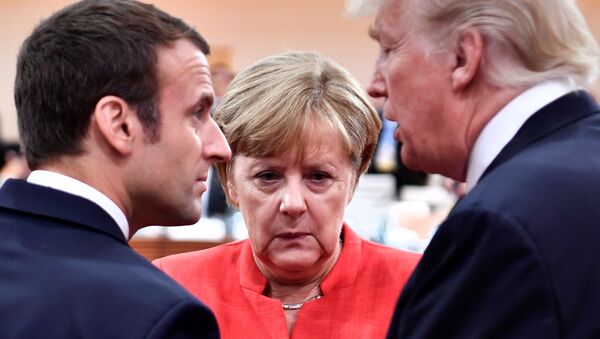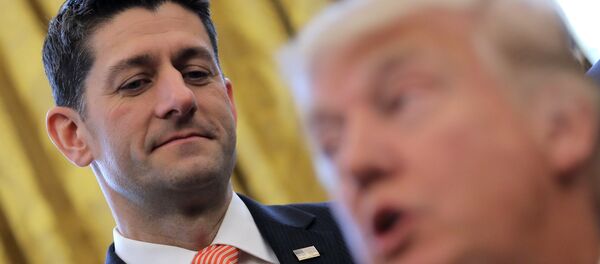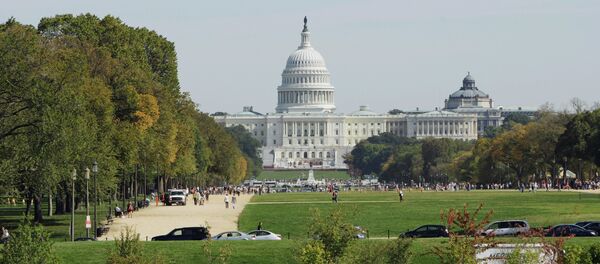The House of Representatives overwhelmingly approved the bill on Tuesday. The chamber voted to attach Iran and Russia to a bill that originally targeted North Korea, which is what the Senate had requested. The bill passed by the Senate retains the stipulation that any attempt by the White House to lift or relax sanctions must go through the US Congress.
The restrictions target Russia's defense, intelligence, mining, shipping and railway industries, and restrict dealings with Russian banks and energy companies.
In addition, Washington continues to oppose the implementation of the Nord Stream 2 gas pipeline project, citing the alleged adverse impact it exerts on the energy security of the EU.
Brussels’ major concern is that the new sanctions will affect energy cooperation with Russia, in particular the construction of the Nord Stream 2 pipeline.
"Abandonment of the Nord Stream 2 project is spelled out in the text of the bill, but in fact, any project in the EU-Russian cooperation in the field of energy security … may be subjected to sanctions, including pipeline repair work, on which EU energy security depends," Gernot Erler, a member of the Bundestag’s Committee on Foreign Affairs, was quoted as saying by the Neue Osnabrücker Zeitung newspaper.
Russian President Vladimir Putin said that if adopted, the US anti-Russia sanctions bill would be an "extra-cynical move."
"These [sanctions] are evident attempts to use their [i.e., the US's] geopolitical advantages in a competitive struggle with an aim to ensure [their] own economic interests at the expense of their allies," Putin said.
"Of course such measures are impossible without authorization by the president," Kremlin spokesperson Dmitry Peskov told reporters.
The possible new sanctions are likely to provoke a surge of serious tensions between the US and Europe, according to Alexei Grivach, deputy head of the National Energy Security Fund and an expert with the Valdai discussion club.
"These sanctions will affect a wide range of European companies involved in export projects with Russia. This will result in a new tectonic break between Washington and Brussels," Grivach told Sputnik, adding that the European Commission is considering a "tough response."
According to the expert, the new sanctions will be used as foreign political weapons and a tool to create more jobs in the US at the expense of the European market. They are also a blow to the self-respect of the European Union.
"This time, the US showed no politeness to its European allies. Brussels is not happy with the fact that Washington does not take Europe’s interests into consideration," Grivach said.
He pointed out that the possible new sanctions comply with Donald Trump’s campaign promises.
The expert added that during the discussions some of the bill’s provisions were softened and thus "Congress is shifting to Trump the responsibility for tensions with Europe."
Commenting further, he suggested that the scope of consequences of the new sanctions would depend not on Trump, but on Moscow and Brussels.
"Europe needs Russian gas and the Russian market. The question is whether the EU still has leaders who are ready to stand for the interests of Europe," Grivach concluded.
Sergei Pravosudov, director of the National Energy Fund, also suggested that the new sanctions risk sparking confrontation between Washington and Brussels.
"Previously Europe actively supported Washington’s sanctions against Russia. But the new bill presumes measures that would seriously hit Europe’s interests. This situation is developing towards a conflict. In this situation, Russia would be a bargaining chip," Pravosudov told Sputnik.





